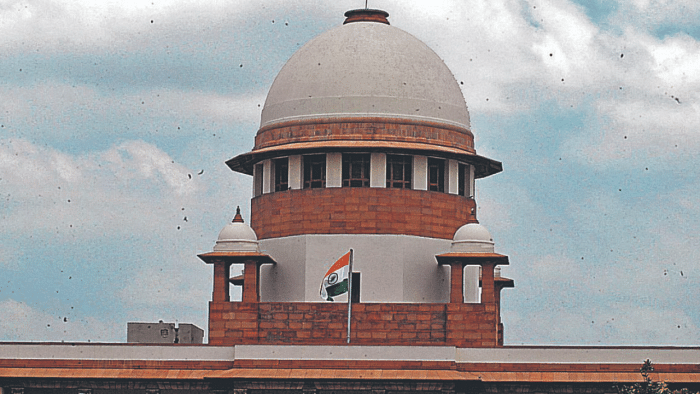
The Supreme Court on Tuesday dismissed a plea challenging Union Health Ministry's March 2023 rules, prohibiting donor gametes to couples opting for children through surrogacy.
A vacation bench of Justices Bela M Trivedi and Prashant Kumar Mishra noted that the notification is already under challenge.
"Why should we entertain this petition? Are you filing this case just for publicity," the bench asked petitioner Nalin Tripathi, who preferred to withdraw the plea.
Also Read | Pre-term births and a silent emergency
The plea challenged the rules on the ground that it is against the provisions of the Surrogacy (Regulation) Act, 2021, which gives the right of parenthood to infertile couples.
Gametes are reproductive cells. In animals, the male gametes are sperms and the female gamete is the ovum or egg cells.
On March 14, 2023, the Ministry of Health and Family Welfare published General Statutory Rules (GSR) 179 (E) which stated, (1) a couple undergoing surrogacy must have both gametes from the intending couple and donor gametes are not allowed (2) single women (widow/divorcee) undergoing surrogacy must use self eggs and donor sperms to avail surrogacy procedure.
Section 2(h) of the Assisted Reproductive Technology Regulation Act, 2021 defines "gamete donor" as a person who provides sperm or oocyte with the objective of enabling an infertile couple or woman to have a child.
The plea claimed the said GSR has the effect of frustrating the provisions of the Surrogacy (Regulations) Act, 2021- which is a welfare legislation giving right of parenthood to infertile couples.
"The said GSR is not only violative of Article 14 and 21 of the Constitution of India, but is also contrary to the objectives of the enactment; therefore the instant Writ Petition is being filed under Article 32 of the Constitution of India, 1950," the plea said.
It said infertility has a significant negative social impact on the lives of infertile couples, particularly women, who frequently experience violence, divorce, social stigma, emotional stress, depression, anxiety, and low self-esteem.
